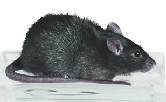- 10 Strategies to Overcome Insomnia
- Could Artificial Sweeteners Be Aging the Brain Faster?
- Techniques for Soothing Your Nervous System
- Does the Water in Your House Smell Funny? Here’s Why
- Can a Daily Dose of Apple Cider Vinegar Actually Aid Weight Loss?
- 6 Health Beverages That Can Actually Spike Your Blood Sugar
- Treatment Options for Social Anxiety Disorder
- Understanding the Connection Between Anxiety and Depression
- How Daily Prunes Can Influence Cholesterol and Inflammation
- When to Take B12 for Better Absorption and Energy
Weight Loss While You Relax? Mouse Study Hints It Could Happen


Fat-burning that leads to weight loss while you sleep or relax sounds like a promise from a quack fad diet, but new genetic research into the causes of obesity suggests it might be possible.
Researchers have found a genetic “switch” inside fat cells that can speed up metabolism, prompting the body to burn off excess fat as heat energy even without exercising, according to a report in the Aug. 19 New England Journal of Medicine.
Laboratory mice lost half their body weight after researchers flipped that genetic switch. And examination of human fat cells has indicated that the process could work much the same in people, said senior author Manolis Kellis, a professor of computer science and computational biology at the Massachusetts Institute of Technology in Cambridge, Mass.
“They were eating the same amount. They were not exercising more,” Kellis said of the lab mice. “They were burning energy in the form of heat, both day and night. That tells us that we switched their metabolism from energy storage to energy dissipation.”
This newly discovered genetic pathway “would be very targetable with drugs,” said Dr. Clifford Rosen, director of clinical and translational research at the Maine Medical Center Research Institute in Scarborough, Maine.
“It is a breakthrough, and so industry is certain to latch onto looking at this much more closely,” said Rosen, who wasn’t involved in the study. However, any human trials of a fat-burning medication are at least five years away, he added.
Obesity is a global public health challenge, affecting more than 500 million people worldwide and costing at least $200 billion each year in the United States alone, the researchers said in background information with the study. Excess weight contributes to most leading causes of death, including heart disease, stroke, type 2 diabetes and cancer.
“It’s just a plague in our society, so being able to reverse obesity can really have societal implications,” Kellis said.
Prior research has strongly linked a single gene called FTO to obesity, but up to now scientists have been unable to figure out exactly how mutations in the FTO gene cause people to pack on pounds.
Kellis and his colleagues delved deeper into this by studying the fat tissue of 100 healthy people of European descent. All were of normal weight, but about half carried a mutation that put them at risk for obesity.
The researchers found that the pro-obesity mutation activated two other genes called IRX3 and IRX5, which are inside cells that produce fat tissue.
Most people think of weight control in terms of exercise versus food, Kellis said. If you burn more calories than you eat, then you can expect to lose weight.
But the body also can burn off fat as heat, a process called thermogenesis. This process kicks in when you go out into the cold, for example, burning fat to help keep you warm and functioning, Kellis said.
IRX3 and IRX5 act as master controllers of the thermogenesis process, ordering the body to store excess energy in fat cells rather than burning it off, the researchers found.
By inhibiting these genes, the researchers increased fat-burning in cells from people who have a genetic risk for obesity, the study reported. The reverse also was true: Boosting the IRX3 and IRX5 genes reduced fat-burning in tissue taken from people not genetically prone to obesity.
“Our study provides evidence that manipulation of a specific genetic circuit has significant pro- and anti-obesity effects,” said lead investigator Melina Claussnitzer, an instructor in medicine at Beth Israel Deaconess Medical Center and Harvard Medical School in Boston. “This is an important finding that shows in addition to diet and exercise, obesity may result from changes at the cellular level.
“This understanding could pave the way for precision medicine approaches to prevent or reverse obesity in older adults,” she added.
Studies in lab mice showed that inhibition of IRX3 caused them to lose weight and increase energy burning without affecting either their levels of physical activity or their appetites, according to findings. They also showed resistance to a high-fat diet.
This discovery is a “big game-changer for obesity” because the genetic switch is located inside a person’s fat cells, Kellis added. Up to now, obesity research has largely focused on therapies that would alter the brain to affect appetite and reduce food cravings.
However, people should not assume this advance means an end to exercise or healthy eating, Kellis said. They need to work out and eat right to keep their hearts ticking properly and maintain a host of other positive benefits that come from a healthy lifestyle.
More information
For more on obesity, visit the U.S. Centers for Disease Control and Prevention.
Source: HealthDay
Copyright © 2026 HealthDay. All rights reserved.










